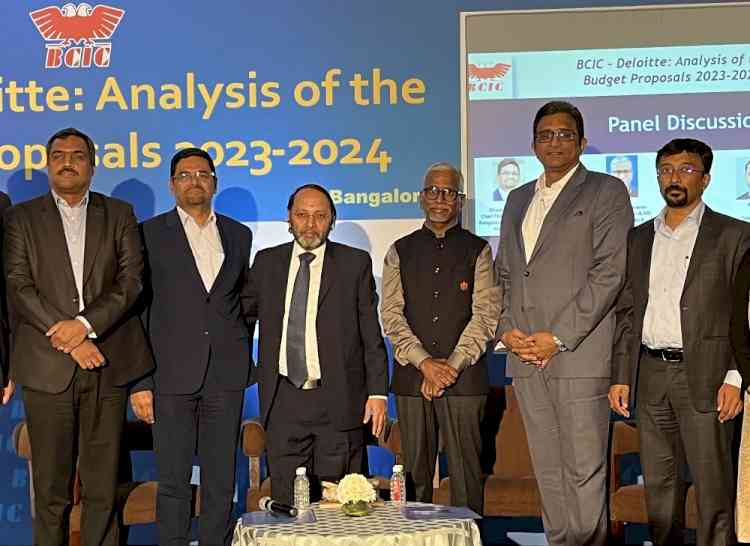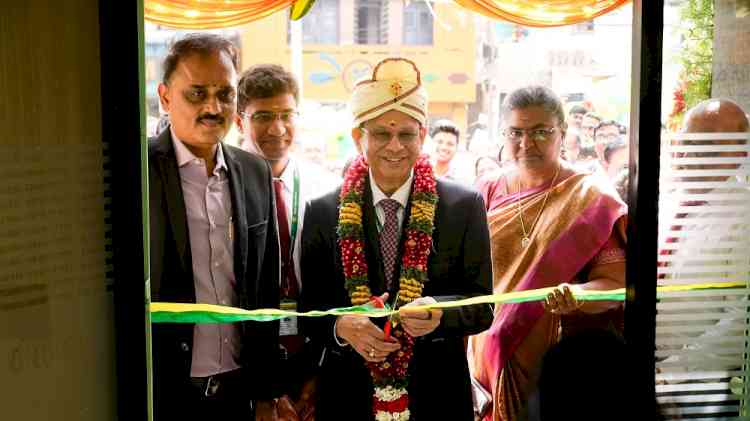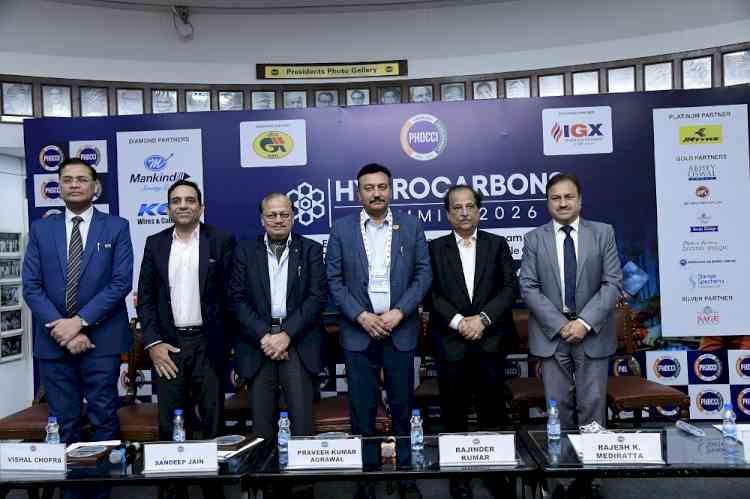Government following the convention of a developed economy: BCIC-Deloitte Budget Analysis
Four recommendations suggested by BCIC have been incorporated in Union budget 2023

Bengaluru, February 3, 2023: The consensus at a budget analysis session organised by BCIC and Deloitte was that the Government does not restrict its major announcements and policies only to the annual budget but rather makes consistent efforts to announce new initiatives and policies regularly during the year to promote growth. The budget analysis also indicated that India is showing signs of emerging as a developed economy by allocating more spends on capex rather than on revex and that the country is betting big on infrastructure, which will in turn boost job creation. Four recommendations suggested by BCIC have been incorporated in this budget including amendment to section 43B of the Income Tax Act 1961 to ensure that large companies who do not pay MSMEs within the due date of 30 days should be disallowed to claim the said amount for income tax purposes, creation of a grievance cell that is independent of the income tax department, creation of a parallel system to dispose of smaller appeals by middle class tax payers, and removal of 20 out of 90 provisions in the income tax act that are not relevant today, the remaining 70 to be reviewed.
In his opening remarks, Dr. L Ravindran, President BCIC said, “The budget has focussed extensively on fuelling domestic demand and public investment in order to propel growth by facilitating infrastructure development, boosting agriculture, healthcare, providing tax benefits to MSMEs and startups among others. It is a bold step towards envisioning a prosperous India.”
Delivering the keynote address, Dr. Rumki Majumdar, Business Economist, Director Deloitte India, said, “The Indian economy is doing well, and both the IMF and World Bank have shown optimism and confidence in the Indian economy. The prime drivers of the economic growth are strong consumption demand as people are willing to spend, a more diversified portfolio of foreign investment particularly from Japan, UAE and United Kingdom and willingness of the government to spend on infrastructure which will be one of the biggest boosts to the economy. This budget indicates that the government is following the convention of a developed economy with an increased spend on CAPEX and less on revenue expenses. There has also been a strong focus on digitization, an area where the country has seen quite a bit of success. The budget is aimed at the youth with emphasis on skill development, job creation, and new and emerging technologies. With the new tax regime the government is encouraging the youth to spend which will result in higher consumer demand.”
In his address K R Sekar, Partner Deloitte - Touche Tohmatsu India LLP said, “The Union Government has bet big on infrastructure as it will have a multiplier effect on the industry including logistics, especially at a time when the private sector is not making large investments mainly due extraordinary costs of logistics to transport goods, the volatile global situation, and the fact that sectors that are contributing to the growth of GDP are not emerging strong. The government is using funds to create more projects so that it empowers the private sector to participate and create employment opportunities. While the overall budget has been positive, the government should have put more impetus on R&D so that manufacturing can grow. While benefits to MSMEs and GIFT City are welcome, the government could have done more for the financial sector which is going through challenges, by possibly adding two or three financial capitals to position itself as a financial services market. The government should also have a constant focus on manufacturing in the larger sense of the word. Providing added impetus to these three sectors along with infrastructure could propel India as a global economic superpower. It is also important for India to evolve from being a forced savings economy.”
The panel discussion that followed was staffed with industry experts including Bhaskar A Rao, CFO Bangalore International Airport Limited, K R Sekar, Partner Deloitte - Touche Tohmatsu India LLP, S Vaitheeswaran, Vice Chairman & MD Manipal Education & Medical Group, Prashanth Doreswamy, President and CEO Continental Automotive Components India, N R Badrinath, Partner Singhvi Dev & Unni LLP, N R Badrinath, Partner Singhvi Dev & Unni LLP and was moderated by Sunil Kumar Dhareshwar, Chairman EVP and Global head- taxation Infosys ltd. The panellists were of the opinion that India is on the cusp of major transformation and the hallmark of the budget was continuity and financial prudence. They opined that while the thrust on Green Hydrogen was a step in the right direction, the impact would be visible only beyond 2030, as more infrastructure and suitable vehicle models were required. They suggested that the 15% taxation on new manufacturing companies should be extended for three to four more years to remove uncertainties. They also suggested that the tax deduction at source be simplified to have only two to three tax rates instead of the current 26 sections and subsections. Also, they stressed that there needs to be accountability on the part of the appellate authority and that taxpayers should be treated as customers.



 City Air News
City Air News 










